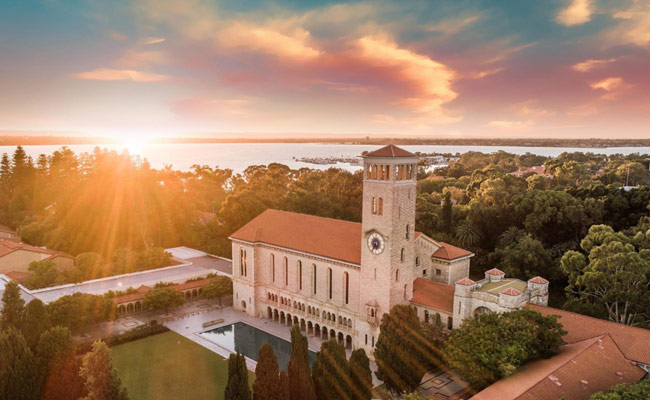University of Western Australia: Broome’s mother of pearl shines a new light on the medical industry
Ground-breaking research from The University of Western Australia has discovered the potential to create a bone substitute from silver-lipped pearl oysters in Broome.
New WA biotech company Marine Biomedical intends to develop medical products and devices including PearlBone from marine resources such as nacre, commonly known as mother of pearl, which are sustainably certified.
Co-inventor Professor Minghao Zheng, from UWA’s Medical School and Perron Institute, devoted many years to the development of the product and said its potential for orthopaedic applications could not be understated.
“Our work has proven that PearlBone substantially supports the process of new bone formation, compared to other synthetic bone substitutes in the market.
“The results to date are very encouraging – through PearlBone, there is a revolutionary opportunity to utilise the process of marine biomineralisation in lieu of traditional devices in orthopaedic, trauma and reconstructive surgical applications.”
Professor Minghao Zheng
Marine Biomedical was established through a partnership with local Broome pearling business Willie Creek Pearls, with research expertise through UWA’s Medical School and support from established biomedical business Orthocell Limited.
Professor Tim Colmer, UWA Deputy Vice Chancellor of Research said the establishment of Marine Biomedical in Broome had shown UWA’s commitment to economic development in the Kimberley.
“It will also strengthen the research and education opportunities in the region,” Professor Colmer said.
Willie Creek Pearls Chairman and Marine Biomedical partner Robert Banfield said he welcomed the opportunity to expand the opportunities for Broome’s internationally renowned pearling industry.
“Modern pearl farming has tended to view nacre as a by-product, but this opportunity to develop PearlBone from this incredible source material shines a light on a whole new opportunity for the pearl farming industry,” Mr Banfield said.
Professor Kevin Pfleger, director of Biomedical Innovation at UWA and MTPConnect WA Life Sciences Innovation Hub, said Marine Biomedical was leading the way in unlocking the incredible potential of our oceans to develop biomedical applications in Australia.
“It demonstrates the capacity for innovation and research excellence in Western Australia,” Professor Pfleger said.
Marine Biomedical will continue the development of PearlBone and pursue regulatory approval for the product in several countries, including Australia, in the next three to four years.

